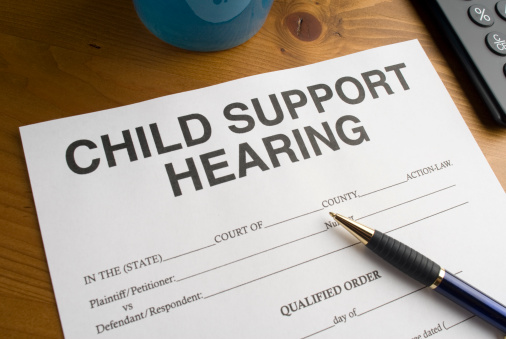 Divorce is a family event that impacts children of all ages.There has been an uptick of divorces for middle-aged and older couples whose children may have already launched their adult lives.Just because children are not living under the same roof with a parent or parents does not mean their lives won’t be deeply affected by family changes that will occur following a divorce.
Divorce is a family event that impacts children of all ages.There has been an uptick of divorces for middle-aged and older couples whose children may have already launched their adult lives.Just because children are not living under the same roof with a parent or parents does not mean their lives won’t be deeply affected by family changes that will occur following a divorce.
At Daisy Camp, I have heard many sad stories of communication breakdowns between parents and their adult children during and after a divorce.Adult children experience unique emotional distress and practical challenges. Regardless of age, children can feel caught in the middle if parents remain in conflict.In fact, adult children can experience a heightened sense of betrayal and confusion about what has happened to their family of origin
Here are three considerations for divorcing parents of adult children:
1. It is helpful for adult children if parents are able to inform them about the divorce with a thoughtfully prepared joint We Statement.This allows parents to be more in charge of the message and the tone, and may gently discourage adult children from feeling as though they are expected to take sides or determine who is to blame.A Neutral Child Specialist can assist parents in the creation of a We Statement.
2. Adult children will continue to have personal and family-centered milestones to celebrate, including graduations, engagements, marriages and births of grandchildren. Advance planning and clear communication with adult children about parents’ readiness and willingness to jointly participate can reduce anxiety for adult children.If parents are not ready and willing to jointly participate, being able to constructively problem solve with children so the events can proceed without undue drama is also helpful to them.A worst-case scenario for adult children is feeling helplessly caught in a power struggle between parents for every family event.
3. Adult children may ask difficult questions, and parents need to be prepared to answer honestly but without making their children feel the necessity of taking sides.Keeping children at the center and out of the middle can be especially challenging if there has been an infidelity or other breach of trust in the marriage.Under these circumstances, it can be especially valuable for divorcing parents to get the support and guidance of a neutral mental health professional.
Collaborative Team Practice provides access to skilled mental health expertise from a Neutral Child Specialist or Neutral Coach to guide parents to support their adult children through a difficult transition that will impact the rest of their lives.It is a privilege to help parents create a legacy of healing and respect for their adult children and grandchildren.
 Co-parenting can be exhausting, especially if your communication skills while you were married were not great to begin with. During your divorce you may have asked yourself, “If we couldn’t communicate effectively while we were married, how are we going to when we are divorced?” It can be extremely difficult to get past the painful history you may have with your ex and overcome any built-up resentment. However, it can be done and it should be for the sake of your children. Below are three areas to work on to build more effective co-parenting communication skills.
Co-parenting can be exhausting, especially if your communication skills while you were married were not great to begin with. During your divorce you may have asked yourself, “If we couldn’t communicate effectively while we were married, how are we going to when we are divorced?” It can be extremely difficult to get past the painful history you may have with your ex and overcome any built-up resentment. However, it can be done and it should be for the sake of your children. Below are three areas to work on to build more effective co-parenting communication skills.


 Divorce is a crisis in the life of a family. It is not actually a legal crisis, though it requires this expertise to ensure that legal resolutions are reached regarding financial matters. It is not a theoretical crisis. It is a genuine emotional crisis. What does this mean for children?
Some years after I began my therapy practice with children and families decades ago, a researcher named Judith Wallerstein published the results of her longitudinal study on the negative impact of divorce on children. The data were a wake-up call, shocking to some, sobering to all. Mental health experts responded by saying parents and social institutions needed to be more attentive to the impact of divorce on children. A book was written advocating bird nesting—parents rather than children transitioning to and from the homestead—as an alternative “custody” arrangement for families (an option we now know to be a temporary rather than permanent solution). Questions began to be raised on the impact of parenting time arrangements that essentially minimized otherwise healthy and loving relationships between parents and children.
At the time Wallerstein’s study was published, the options available for divorcing parents were largely adversarial in nature. The focus was “rights based,” not based on supporting co-parenting and keeping children out of the middle of the crisis. Many of the parents with whom I work attest to the emotional trauma they experienced when their own parents divorced. In fact, it is likely these divorcing parents were assured by their attorneys that “children are resilient—your kids will be fine.” But we know that children do not become resilient in a vacuum. They need adults to create environments of support and attention to their needs.
Collaborative team divorce offers a clear and powerful alternative for parents who love their children and want to envision a hopeful future for them. Families work with a multidisciplinary team of professionals with specific skills and experience. Mental health expertise is woven throughout the process, both to specifically support children and to provide parents with the best possible grounding for effective co-parenting. If you want to know more about how your family can weather the emotional crisis of divorce with the most dignity and respect for the needs of your children, please learn more about Collaborative team practice at this link to the website for the
Divorce is a crisis in the life of a family. It is not actually a legal crisis, though it requires this expertise to ensure that legal resolutions are reached regarding financial matters. It is not a theoretical crisis. It is a genuine emotional crisis. What does this mean for children?
Some years after I began my therapy practice with children and families decades ago, a researcher named Judith Wallerstein published the results of her longitudinal study on the negative impact of divorce on children. The data were a wake-up call, shocking to some, sobering to all. Mental health experts responded by saying parents and social institutions needed to be more attentive to the impact of divorce on children. A book was written advocating bird nesting—parents rather than children transitioning to and from the homestead—as an alternative “custody” arrangement for families (an option we now know to be a temporary rather than permanent solution). Questions began to be raised on the impact of parenting time arrangements that essentially minimized otherwise healthy and loving relationships between parents and children.
At the time Wallerstein’s study was published, the options available for divorcing parents were largely adversarial in nature. The focus was “rights based,” not based on supporting co-parenting and keeping children out of the middle of the crisis. Many of the parents with whom I work attest to the emotional trauma they experienced when their own parents divorced. In fact, it is likely these divorcing parents were assured by their attorneys that “children are resilient—your kids will be fine.” But we know that children do not become resilient in a vacuum. They need adults to create environments of support and attention to their needs.
Collaborative team divorce offers a clear and powerful alternative for parents who love their children and want to envision a hopeful future for them. Families work with a multidisciplinary team of professionals with specific skills and experience. Mental health expertise is woven throughout the process, both to specifically support children and to provide parents with the best possible grounding for effective co-parenting. If you want to know more about how your family can weather the emotional crisis of divorce with the most dignity and respect for the needs of your children, please learn more about Collaborative team practice at this link to the website for the  Divorcing parents often wonder how vacations are treated in a parenting plan. There are often three types of vacation options addressed in divorce.
Divorcing parents often wonder how vacations are treated in a parenting plan. There are often three types of vacation options addressed in divorce.



 Peace is possible though we are surrounded by high conflict. In the recent words of former Secretary of State Madeleine Albright, “The world is a mess.” Messiness occurs when people are unable or unwilling to resolve differences without wars of words or weapons. This occurs not only globally but also on a personal scale. And for all the extraordinary human costs of violent conflict, the most deeply distressing is its impact on children.
The end of a marriage is not unlike the breaking up of a country based on sectarian differences. Is it possible to disconnect without civil war? Yes, but one must be mindful of the path one is choosing, and deliberately opt to not do battle. Though sometimes complicated, peaceful resolutions are possible if the focus remains the safety and wellbeing of children.
I do not believe conflict is inevitable, because for every cause of conflict there is an inverse possibility. In our day-to-day lives, we can choose a path of peace. We can elect to follow
Peace is possible though we are surrounded by high conflict. In the recent words of former Secretary of State Madeleine Albright, “The world is a mess.” Messiness occurs when people are unable or unwilling to resolve differences without wars of words or weapons. This occurs not only globally but also on a personal scale. And for all the extraordinary human costs of violent conflict, the most deeply distressing is its impact on children.
The end of a marriage is not unlike the breaking up of a country based on sectarian differences. Is it possible to disconnect without civil war? Yes, but one must be mindful of the path one is choosing, and deliberately opt to not do battle. Though sometimes complicated, peaceful resolutions are possible if the focus remains the safety and wellbeing of children.
I do not believe conflict is inevitable, because for every cause of conflict there is an inverse possibility. In our day-to-day lives, we can choose a path of peace. We can elect to follow 

